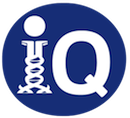- Determine the capacity of your therapeutic to bind to components of whole blood with an in vitro cell binding assay
- Whole blood procured from local IRB-approved blood centers
- The following cell subsets may be assessed, from the same or different donors:
- Red blood cells
- Platelets
- PBMCs freshly isolated from whole blood
- Assess cell binding via fluorescence detection of a directly-conjugated therapeutic or an appropriately selected fluorescent secondary antibody
- Strict positive and negative controls are included for each cell subset of interest, along with various concentrations of your therapeutic
- Data are provided in appropriate formats, including PowerPoint slides, Excel files, and/or direct data files (e.g., GraphPad Prism)
Service Overview
About the Whole Blood Cell Binding Assay
Off-target binding of a therapeutic molecule to cellular components of whole blood can be a safety concern in the clinic. For example, drug interactions with platelets can cause platelet activation and destruction, thereby increasing the risk for thrombocytopenia, a low platelet count. Off-target binding of a therapeutic to cellular components in the blood may also affect biodistribution and bioavailability of that therapeutic, ultimately impacting its pharmacokinetic properties. The whole blood cell binding assay provides an in vitro screen to determine the binding potential of a therapeutic to cell types of interest (off-target or on-target) using flow cytometric analysis.
At iQ Biosciences, we have experience performing cell binding assays with all cellular components of whole blood. In this assay, fresh whole blood is obtained from healthy donors and processed into multiple components: red blood cells (RBCs), platelet rich plasma (PRP), and/or peripheral blood mononuclear cells (PBMCs; T cells, B cells, monocytes, and natural killer cells). Cells are incubated with the therapeutic candidate, followed by and appropriate fluorescently-labeled secondary antibody, if applicable, in order to detect test article binding to each target cell type. Cells are co-stained with appropriate lineage markers, as applicable, to identify potential therapeutic binding to cell subsets of interest within PBMCs. This assay is typically performed with a range of therapeutic concentrations and with more than one healthy donor to elucidate any dose-responsive or donor-dependent effects.
